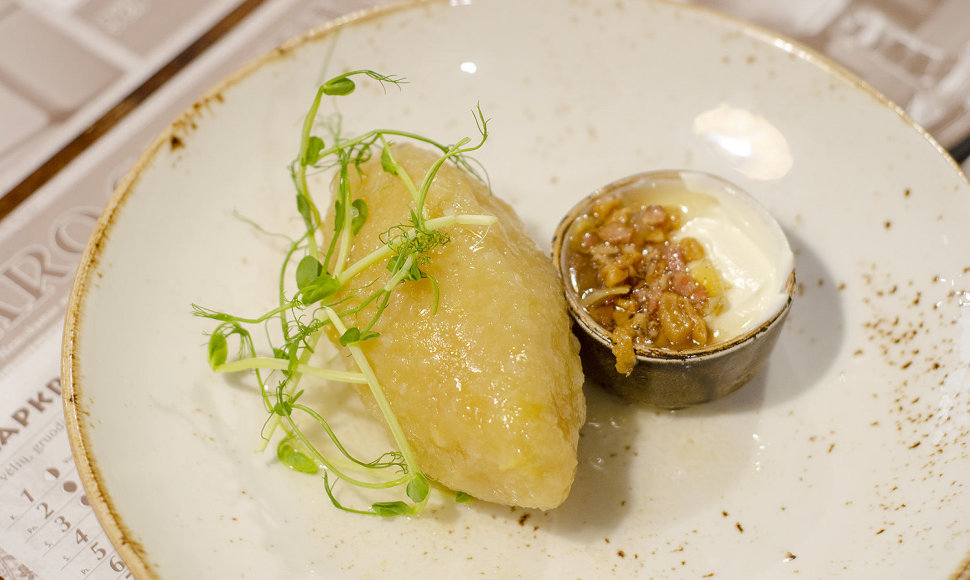The still unclear identify of the Lithuanian national cuisine was noted as the key weakness in the survey carried out by Lithuania Travel and presented in the SWOT (strengths, weaknesses, opportunities, and threats) analysis of Lithuanian gastrotourism. According to Mr Morkvėnas, a gastrotourism identity cannot be shaped without the active involvement of the players of this sector – restaurateurs, chefs and other specialists.
“Having completed the first SWOT analysis of Lithuanian gastronomy, we have taken the first step and we know that we have a long way to go to create a strategy, launch a marketing campaign and involve influencers and fans from abroad. However, we will only be able to do this after we form a “national menu” – dishes and experiences that represent our country the best and allow us distinguish ourselves from others and attract attention”, says the head of Lithuania Travel. “Two decades ago, it would have been difficult to imagine that countries such as Denmark, Australia or Slovenia would sometime be famous for their restaurants and dishes. Now, thanks to well-focused efforts and a clear vision, they are collecting Michelin stars and attracting impressive numbers of tourists, for whom gastronomic experiences matter when choosing their travel destinations.”
Speaking about the gastrotourism potential of Lithuania, the head of Lithuania travel emphasises multiple benefits of this type of tourism.
“Becoming a known destination of gastrotourism matters not only for restaurateurs and the best chefs of the country, but it also matters for others as many professions and ultimately municipalities and the state per se, earn their living from tourism. A regular tourist spends about a fourth of their budget on food and drinks, while more picky travellers who appreciate gastronomic experiences might allow even more.”
The growing flows of gastrotourists also contribute to the mitigation of seasonality. Trips based on gastronomic experiences (visiting restaurants, tastings, cooking workshops, food and wine festivals) are often weekend excursions that are not dependant on weather conditions and vacation schedules.
The Lithuanian gastrotourism analysis carried out by Lithuania Travel together with the market survey company RAIT GROUP shows that Lithuania has the key prerequisites to become a point of gastrotourism attraction. A strengthening preference for quality, the ability of restaurants and chefs to combine traditions and novelties, and the multiculturality of Lithuanian cuisine which allow it to be presented from different angles are all mentioned among the strengths of the country.
Besides the vague identity, lack of institutional cooperation and the fact that the experiments of Lithuanian chefs so far have reached just a fraction of the Lithuanian population are listed as weaknesses.
According to Mr Morkvėnas, countries which are highly appreciated in the world of gastronomy today have not attained this reputation by accident.
“Let us consider the particularly successful example of Australia. Unable to boast of hundred-year-old culinary traditions like France or Italy, a decade ago, Australia was associated with good culinary experiences for only a small number of foreign travellers. In 2013, an extensive campaign, Restaurant Australia, which lasted four years was created and resulted in an almost 40% increase in food and drink expenditures of foreign tourists.”
You can find Lithuania Travel’s SWOT analysis of Lithuanian gastronomy here (in Lithuanian).
About the SWOT analysis of Lithuanian gastrotourism
The survey was carried out by Lithuania Travel in association with the market survey company RAIT, part of the RAIT GROUP operating in the Baltics, in August-October 2019. During the survey, 16 experts from the gastronomy and public catering sector were surveyed. They researchers conducted 6 interviews and 2 focus group discussions.












